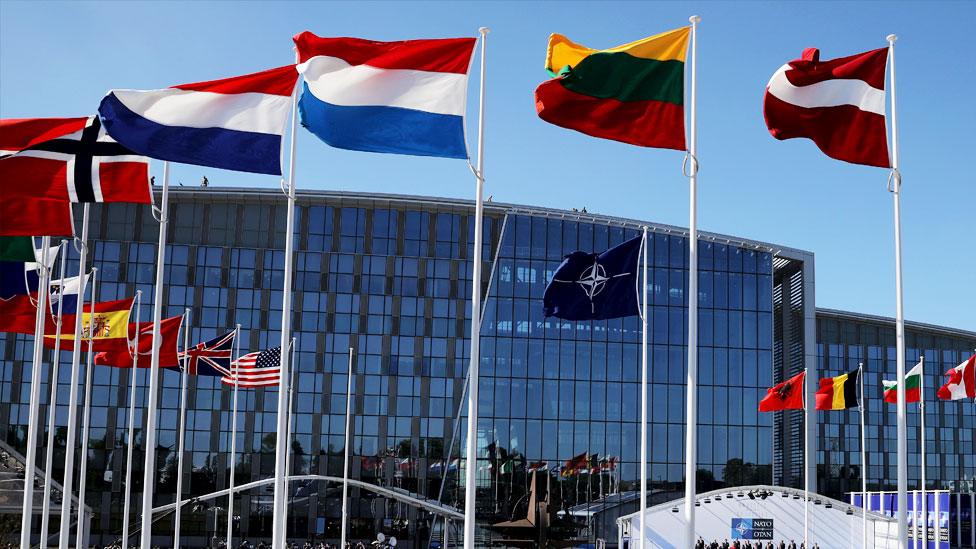Russian spy: The police, the public and the poison
- Published
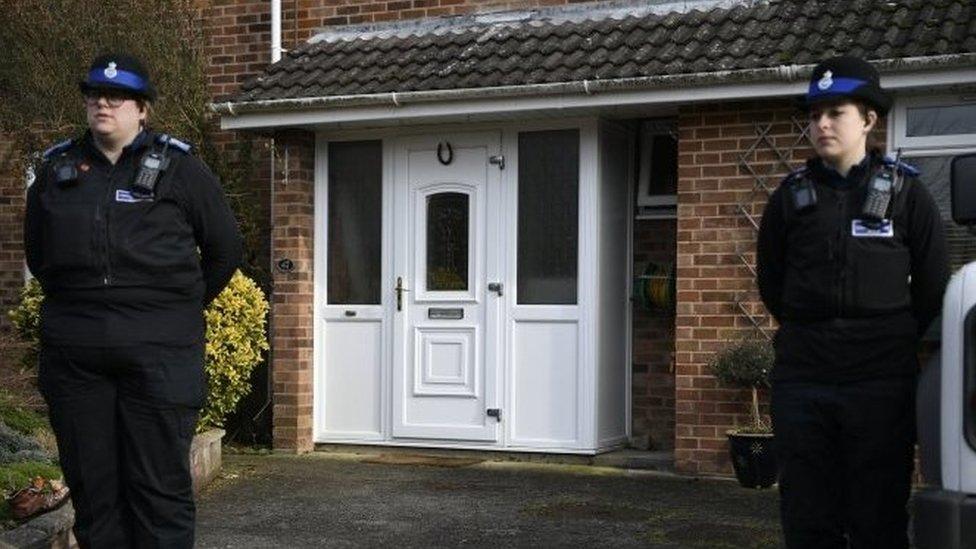
Police stand outside the home of Sergei Skripal
It is clear that Sergei Skripal's house was not regarded as crucial to the investigation, or a potential health risk, until several days after the incident.
The BBC was told on Monday, 5 March, the day after the attack, that former Russia spy Mr Skripal, external and his daughter Yulia, had been poisoned in Salisbury.
This had not been made public and the police refused to discuss it.
Even when questioned about false reports that drug-taking was the cause, Wiltshire Police press officers would only say they did not know where that had come from.
At that point, Wiltshire Police had simply said it was dealing with a major incident after two people were exposed to an 'unknown substance in Salisbury'.
Allow X content?
This article contains content provided by X. We ask for your permission before anything is loaded, as they may be using cookies and other technologies. You may want to read X’s cookie policy, external and privacy policy, external before accepting. To view this content choose ‘accept and continue’.
A number of locations were said to have been cordoned off.
As part of our attempts to check what we had been told we went to Mr Skripal's publicly listed address, arriving around 24 hours after the incident at the Maltings Shopping Centre - the area where the pair had collapsed.
There was a police car on the drive, an officer sitting inside, but there was no cordon. We were able to walk within a few metres of the door, but we didn't knock.
We were aware there might be a health risk, and one of our team had received past training in chemical and biological threats.
There is no suggestion the police had not assessed the risk at the house.
But the response was markedly different there compared to the measures in place at Salisbury District Hospital, and the Maltings, where a team in full protective gear had already carried out some decontamination.
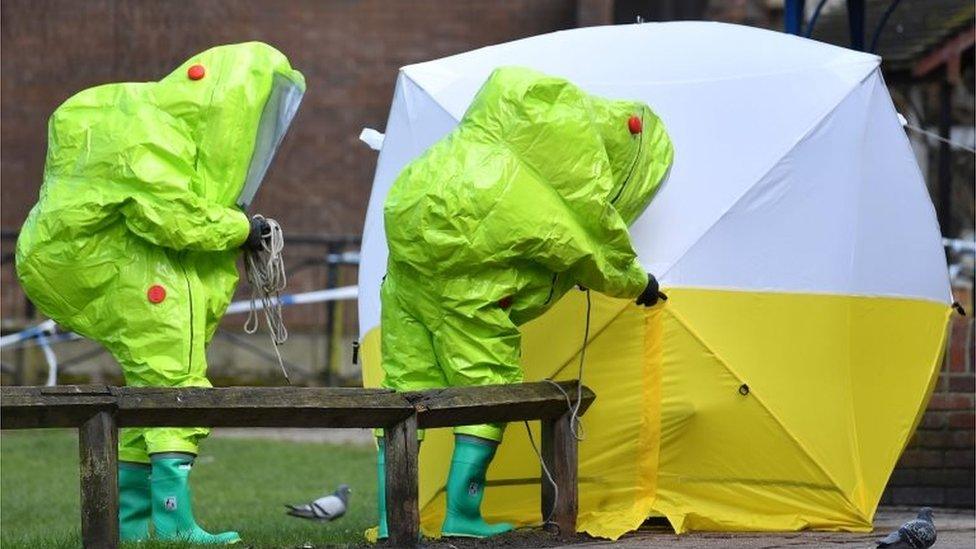
Members of the emergency services in biohazard suits afix a tent over the bench where Sergei and Yulia Skripal were found
At 18:00 GMT that day, the BBC broke the news that Mr Skripal was at the centre of the incident.
Meanwhile police were reviewing CCTV images and realised the pair had visited the Zizzi restaurant and a nearby pub. These sites were sealed off that evening, after closing time.
But, only on Thursday, 8 March, four days after the poisoning, did police cordon off Mr Skripal's street, and begin a forensic and scientific examination, with full protection.
There were other places which were left open to the public for days, including the cemetery, where the couple are thought to have visited Sergei's son's grave.
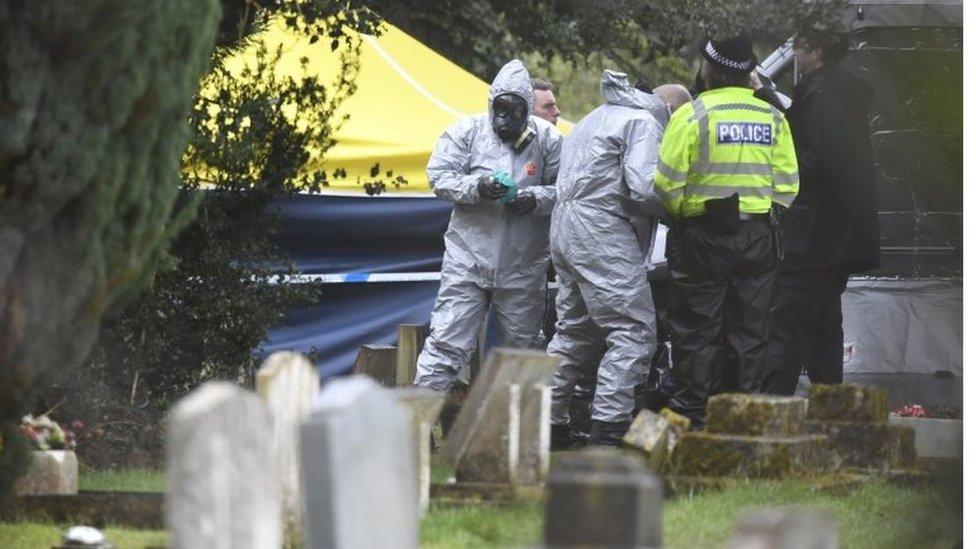
Forensic police work at the grave site where Sergei Skripal's wife and son are buried
The BBC understands police believe the nerve agent was left on the door handle at the house and that the father and daughter had it on their hands. They drove into town, parking close to the Maltings shopping area.
A car park ticket machine they may have touched was only covered around eight days after the incident.
Public Health England released limited information that week, but only on Sunday, 11 March, after the BBC revealed that the nerve agent had been detected in the Zizzi restaurant, was detailed advice issued.
People who had been at the restaurant and a pub, the Mill, were told to wash or bag their clothing.
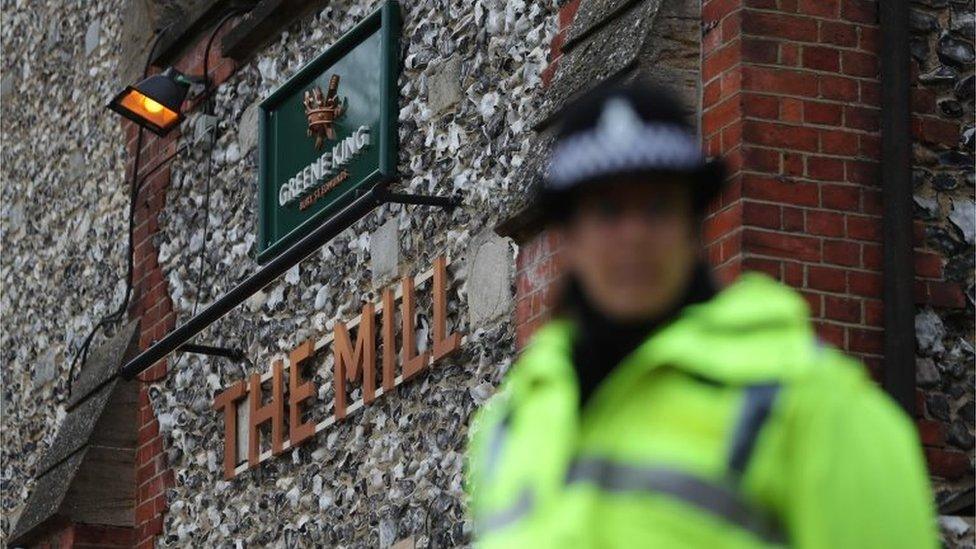
Other than the Skripals, the only person seriously affected was DS Nick Bailey who is believed to have visited the house.
Even a doctor who treated Yulia Skripal that day and came into close contact with her told the BBC she has experienced no symptoms. Dozens of others sought medical advice but have been assessed as in the clear.
However the authorities have not given detailed information about what they know of the nerve agent's potency over time, and the form it had taken. The government's Porton Down facility has been studying the Novichok-class substance for several weeks.


The handling of this chilling incident is likely to be reviewed at least internally by the emergency services, and questions may be asked about whether the public was given enough information and protection in the early stages.
But it is also clear that this is an extremely difficult investigation.
The authorities not only have to piece together when and how someone might have targeted the Skripals. They also have to manage the massive decontamination operation of public spaces which were affected by the deliberate use of a chemical weapon in a British city.
- Published28 March 2018
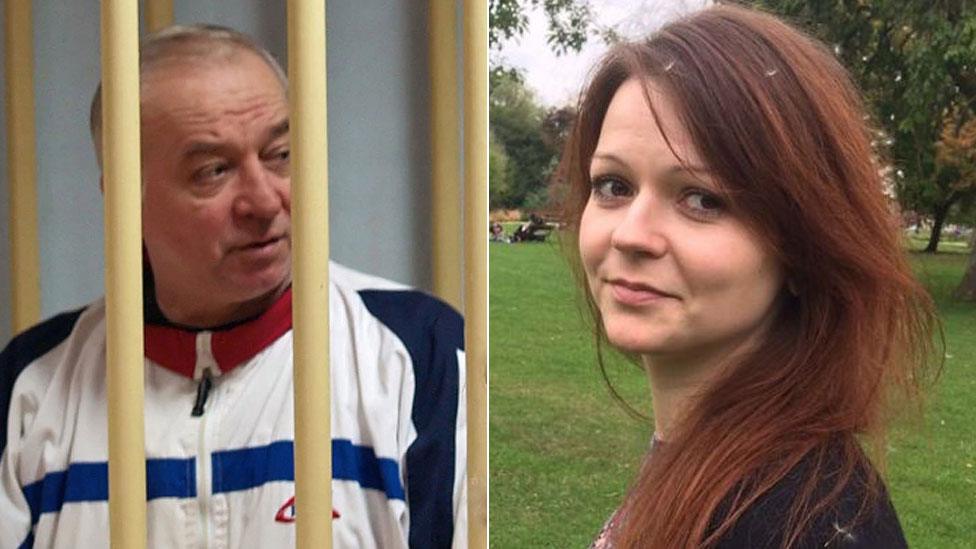
- Published28 March 2018
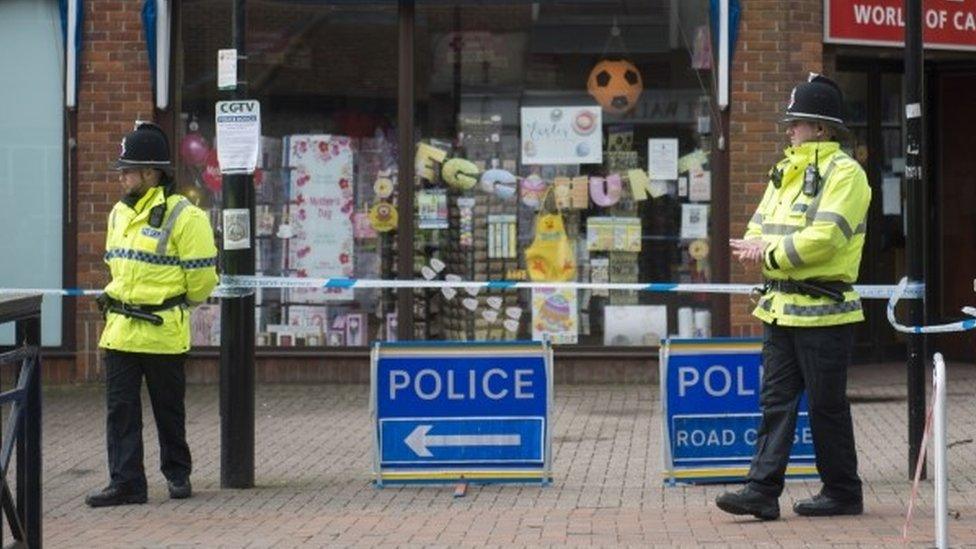
- Published27 March 2018
